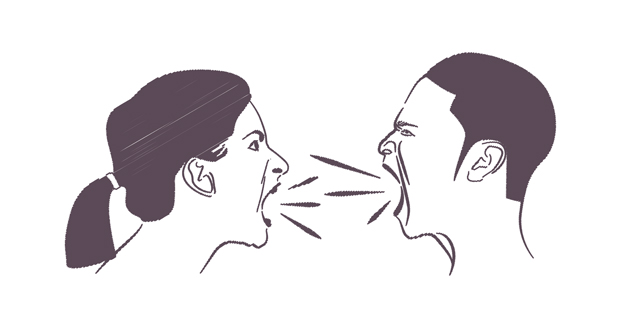With recent research showing that close to half of newly qualified teachers leave the profession within five years, the education industry must take practical steps to protect teachers from situations which may injure or harm them. Challenging behaviours in the workplace come in many forms, but generally occur where one individual’s actions or behaviours negatively impact another’s. Challenging behaviour may come from a peer, colleague, student or parent. These situations are difficult and impact all parties involved. If not managed correctly, it can become a workplace hazard and impact on productivity.
Educators play a vital role in the community and we collectively need to support them so they can do their job. Learning the skills to respond to emotionally charged situations is crucial for today’s teachers. Our data shows a 36 per cent increase in the number of educators seeking support from counsellors over the past five years, most commonly for anxiety (34 per cent) and workplace stress (18 per cent). A recent Australian study also shows that 44 per cent of principals have been threatened with violence1.
To tackle this, AccessEAP has designed training programs for frontline employees who may face situations where they could potentially be at risk of physical or psychological harm, to learn skills to know how to respond. This training is based on constructive conversations and using words to prevent, de-escalate or end an attempted verbal or physical assault while maintaining mental and emotional safety. The best outcome involves managing emotions and using skills to ensure that the conversation progresses toward a peaceful conclusion.
Participants learn to assess the level of psychological risk present in any given situation by better understanding their own signs of distress so as to identify what sort of action to take.
Here are some effective strategies for defusing challenging behaviours in the workplace:
Recognise your own stress signature
When faced with a threat, our bodies experience a collection of responses and our brain activates a threat response even before our conscious mind can process what’s happening. This stress response reduces our capacity for logical thinking so it’s important to take a step back and assess your physical, mental, emotional and behavioural reactions in order to determine the best course of action.
Two people may experience the same situation and have different stress reactions. Being able to determine whether your reaction is normal for you, or one that suggests you are at risk is vital in deciding the next steps and ensuring your own safety. Before engaging further, ensure you are able to think clearly and calmly.
Respond rather than react
It is more effective to respond to a situation rather than to react to the moment. Responding allows us to control the situation, whereas reacting lets it control us. It is important not to ignore or dismiss a question. Try not to justify or defend yourself, let them express their frustration and once they have finished, speak with confidence, explain, educate and win their respect. Do not argue with the other person as this escalates their emotions.
Avoid statements such as 'You wouldn’t understand,' 'It’s none of your business,' or 'Be reasonable'. Use empathy to absorb tension and instead try statements like, 'Let me be sure I understand you correctly'. Your interest allows them to calm down and they will be open to listening because they have been heard. If the situation continues to present a risk, you must withdraw to guarantee your own safety. 'I will end this conversation if you continue to yell at me.'
Debriefing & self-care
If you experience an incident of challenging behaviour in the workplace, you should seek immediate support from a manager. For less serious incidents, a team discussion and debrief, peer support or other self-care strategies may be sufficient. For serious incidents, trauma support from an employee assistance program or counselling may be required to help process what has happened.
When challenging behaviours occur, the most important thing to remember is to maintain the personal safety of educators.
Marcela Slepica is clinical services manager at AccessEAP.
Reference:
The Australian Principal Occupational Health, Safety and Wellbeing Survey
Do you have an idea for a story?Email [email protected]
 Education Review The latest in education news
Education Review The latest in education news
